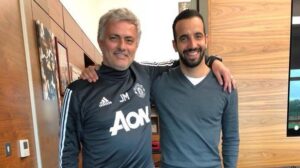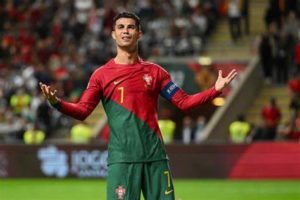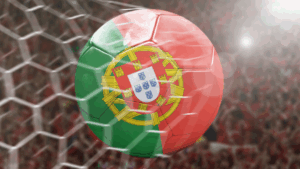Portuguese football continues to demonstrate itself as Europe’s talent development hotbed, where clubs systematically apply tried review criteria for finding and developing world-class talents that end up shining on Europe’s biggest stages. Primeira Liga’s record for producing great talent is akin to winning gaming platforms that continue to deliver fun experiences, crafting environments where both promising new faces and established stars can thrive under optimal conditions that enable them to achieve their highest level for long-term success.
Sporting CP’s Championship Glory and Domestic Dominance
Sporting CP capped their record-breaking 2024-25 season with victories in the Primeira Liga and Taça de Portugal, their first domestic double since 2002. The Lions claimed their 21st league championship on the back of solid shows against top-flight opponents, most notably triumphs against traditional rivals Benfica and Porto. The title is the culmination of long-term strategy and player development initiated during Rúben Amorim’s tenure and carried on by Rui Borges after the mid-season coaching change.
The Portuguese Cup final against Benfica epitomized Sporting’s championship mentality, as they overcame a 1-0 deficit to win 3-1 in extra time at the iconic Jamor National Stadium. Viktor Gyökeres’ stoppage-time penalty conversion forced extra time, while Conrad Harder and Francisco Trincão secured the victory during the additional periods. This dramatic triumph highlighted Sporting’s mental resilience and tactical flexibility under pressure, qualities essential for sustained success in Portuguese football’s competitive environment.
The Big Three’s Managerial Revolution
The 2024-25 season was a record-breaking event in Portuguese football history, with all three of the leading clubs having managers change within a single season for the first time ever. Benfica dismissed Roger Schmidt in August and installed Bruno Lage as the new boss in order to regain domestic competitiveness. Sporting’s change from Rúben Amorim to João Pereira and subsequent change to Rui Borges showed the club was determined to maintain championship standard in the face of extreme disruption. Porto’s January dismissal of Vítor Bruno contributed this record managerial merry-go-round to Portugal’s top clubs:
- Tactical evolution through diverse coaching philosophies and tactical styles;
- Players’ need to adapt in the midst of mid-season managerial changes and system resets;
- Organizational stability concerns affecting long-term planning and player development;
- European competition preparation complicated by domestic coaching uncertainty;
- Transfer market implications as new managers take account of existing squads and future needs.
These shifts in coaching were the reflection of the high-pressure nature of Portugal’s competitive football, under which domestic performance naturally improves European qualification and international player evaluation. The success in maintaining performance levels during managerial transition is an indication of the ingrained strength and professionalism in Portugal’s football set-up.
Transfer Market Excellence and Player Development
Portuguese clubs continue to demonstrate excellent talent spotting and development skills, constructing sustainable business models in the shape of smart player trading. Benfica’s pursuit of high-profile targets like Bernardo Silva and João Félix show their commitment to playing at European levels while being financially secure. The potential returns on these players would be colossal declarations of the Primeira Liga’s ability to nurture and hold on to world-class talent.
Sporting CP has enormous decisions to make regarding Viktor Gyökeres, whose goal-scoring exploits have attracted some of Europe’s biggest clubs, including Juventus, Al Hilal, and Premier League clubs. The loss of the Swedish striker would provide substantial transfer fees while testing Sporting to fill the gap with replacement talent. Manchester United’s interest in Ousmane Diomandé and other Sporting defenders further demonstrates the lasting strength of Portuguese player development systems.
European Competition Impact and International Recognition
Portuguese football success in Europe goes beyond personal player triumph to include systematic superiority at several levels of competition. The repetitive generation of Champions League and Europa League competitors illustrates the league’s depth of competition and tactical refinement. Players such as Wild Bounty Showdown demo slot fans playing strategies before committing to real-money games, Portuguese players and coaches prepare exhaustively for European tests through domestic competition that closely reflects continental ferocity.
The Premier League-to-Portugal pipeline continues to churn considerable revenue for Portuguese clubs while maintaining competitive balance in the domestic league. This sustainable model permits continuous investment in youth development and infrastructure improvements that benefit the Portuguese football system as a whole:
- Champions League qualification guaranteeing Portuguese football’s UEFA coefficient ranking;
- Europa League participation providing additional European experience for young players;
- Conference League opportunities enabling smaller Portuguese clubs to gain continental exposure
- Financing of overseas player sales, infrastructure development for academies, and investments;
- Coaching education courses produce tactically aware managers to play in European competition.
Continued evolution of Portuguese football is a testament to the perfect equipoise between tradition and innovation, a place where venerable clubs may compete abroad with the aid of bringing up the next generation of football supremacy. The league’s ability to meet competitive domestic action with systematic development of players ensures that it is one of Europe’s most respected football competitions.




